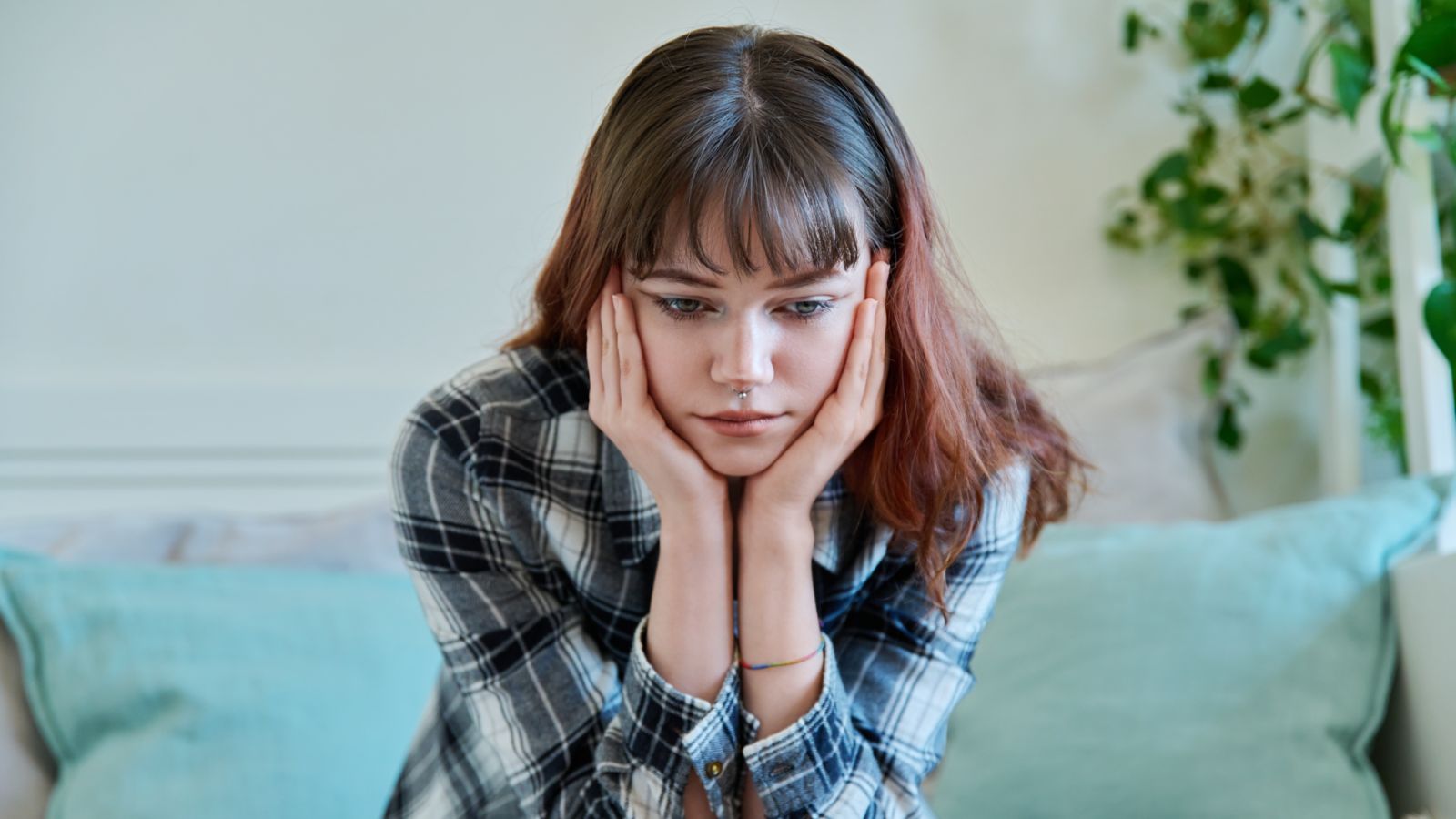Anxiety can be an overwhelming emotion, draining your energy and affecting your daily life. To manage and reduce anxiety, it’s important to recognize certain habits and behaviors that may be making it worse. So, here are some things to avoid if you want to keep anxiety at bay.
Binge Eat

Eating Disorder Hope notes that anxiety and overeating often go hand in hand. We use food to somehow reduce the intensity or distract ourselves from the anxiety. But when you next feel anxious, try not to overeat, because negative feelings about your body image can lead to more anxiety.
Drink Coffee

Coffee is a stimulant. The Harvard T.H. Chan School of Public Health says that higher doses of coffee (over 300 mg) may have negative effects on the body, such as anxiety, restlessness, insomnia, and an increased heart rate. Drinking too much coffee while you feel anxious could make it worse.
Stay Quiet

When you’re feeling anxious, it’s important to share those feelings with others. Keeping the situation to yourself can make you feel alone and increase your anxiety levels. Instead, talk about your feelings with a close friend or family member whom you trust.
Overthink

Going over and over a negative situation in your head will only make you feel worse if you’re suffering from anxiety. It’s okay to acknowledge a negative situation and evaluate what you could have done differently, but try to move on quickly. Changing activities is often a good distraction.
Sit in Silence

When you’re feeling anxious, you need upbeat music to occupy your mind and dissipate the negative thoughts that are racing around your head. Sitting in silence will only give way to anxious thoughts. Healthline says that music exerts a powerful influence on human beings and can even reduce anxiety and depression.
Ignore Your Friends

Your friends know you well and may notice when you’re feeling really anxious. Don’t ignore your friends or push them away from you: accept help and open up to them. Even if talking is difficult, a change of scenery might be all you need to begin feeling better.
Sit Still

Exercise can help reduce your anxiety levels as it releases endorphins and promotes relaxation. Try to do 60 minutes of exercise three times a week. If you sit still and don’t exercise, your anxiety will make you feel tense, and you might have trouble sleeping.
Ignore Your Routine

Everyone needs to have a good routine to feel productive during the day. If you’re suffering from a spell of anxiety, don’t cancel everything on your agenda. Rather, try to keep up with your normal schedule, as the activity will distract your anxious mind.
Overcommit

Although keeping busy is a good distraction for people with anxiety, you must be balanced. Taking on too many responsibilities will make you feel more anxious and could overwhelm you. Think about what you can realistically do and stick with that. Reward yourself after completing a job successfully.
Be Negative

Giving way to negative thoughts isn’t good for anxious people. If you’re an anxious person, try to think positively about your situation and concentrate on the good things in life. Think optimistically about the future, and continue to set goals and work toward them.
Procrastinate

Your anxious feelings will only increase in intensity if you procrastinate. Putting off important jobs will make you feel uneasy, and when their deadlines arrive, you’ll feel stressed. This stress can make you feel worse. Instead, schedule your time well so you can meet your deadlines.
Stay Up

Losing sleep will make your anxiety worse. Even if you feel like your mind can’t rest when you lie down, it’s still good for you to stay lying down so that your body can relax. Resist the urge to stay up into the early hours of the morning.
Ignore Personal Care

Ignoring personal care because of anxiety is a problem. If you stop taking care of yourself, you’ll begin to view yourself negatively. Having a negative body image will only make you feel worthless and even more anxious. Take good care of yourself at all times, especially when you’re anxious.
Stay On Social Media

Too much social media and screen time can increase your feelings of anxiety, as they can expose you to negative images and irrealities that make you doubt your self-worth. When you feel anxious, swap social media for time with your friends in person, get some exercise, and get enough sleep at night.
Drink

According to the AAC, anxiety disorders commonly occur with alcohol use disorders. So, if you’re feeling anxious, the last thing you should do is reach for your liquor cabinet. You must avoid drinking at this time and stay away from friends who would encourage you to drink.
Isolate Yourself

Statistics from Cross River Therapy show that one in three people experiences loneliness regularly. If you feel anxious, don’t isolate yourself, as this will make you feel even more anxious. Instead, talk your feelings through with a friend.
Panic

WebMD says that one in ten adults has a panic attack each year, and they usually begin between the ages of 15 and 25. When you feel extremely anxious and begin to panic, you put yourself at risk of a panic attack. Try your best to calm yourself down before things escalate.
Make Big Decisions

When we feel anxious, we often feel the urge to make drastic decisions. But making rash decisions can lead to regret and a lot of hurt feelings, which will make you feel even worse later on. Leave all of the important decision-making for when you’re feeling better.
Neglect Your Environment

Failing to clean your home, car, clothes, or anything else won’t make your anxiety any better. Although anxiety is exhausting, stick to your normal routine. If your home is clean and presentable, you’ll feel more confident and have more room to think positively.

